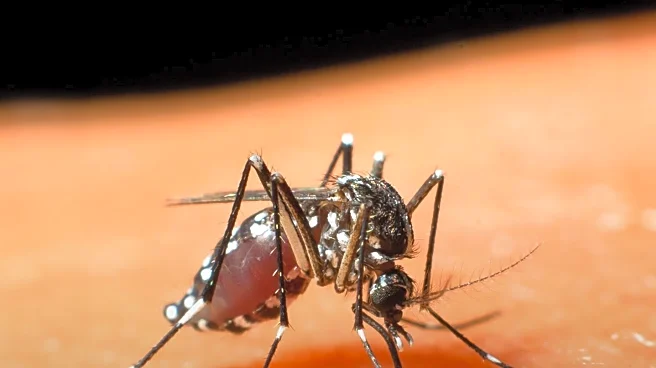What's Happening?
The Centers for Disease Control and Prevention (CDC) has issued a warning about the spread of Chagas disease in the United States, transmitted by insects known as kissing bugs. These bugs are increasingly being found across the country, raising public health concerns. The disease, caused by the parasite Trypanosoma cruzi, can lead to serious cardiac and digestive complications if left untreated. The CDC's report highlights the need for increased awareness and preventive measures to control the spread of these insects and the disease they carry.
Why It's Important?
The spread of Chagas disease poses a significant public health challenge in the U.S., as it can lead to severe health issues if not diagnosed and treated early. The presence of kissing bugs in more regions increases the risk of transmission, particularly in areas where the bugs are not commonly found. This development underscores the importance of public health initiatives to educate communities about the risks and symptoms of Chagas disease. It also highlights the need for healthcare providers to be vigilant in diagnosing and managing cases, especially in regions newly affected by the disease.
What's Next?
Public health officials are likely to increase efforts to monitor and control the spread of kissing bugs. This may involve community education programs, enhanced surveillance, and research into effective prevention and treatment strategies. The CDC may also collaborate with local health departments to implement measures aimed at reducing the risk of Chagas disease transmission. As awareness grows, individuals in affected areas may be encouraged to take precautions to minimize contact with kissing bugs, such as using insect repellent and ensuring homes are sealed against insect entry.










